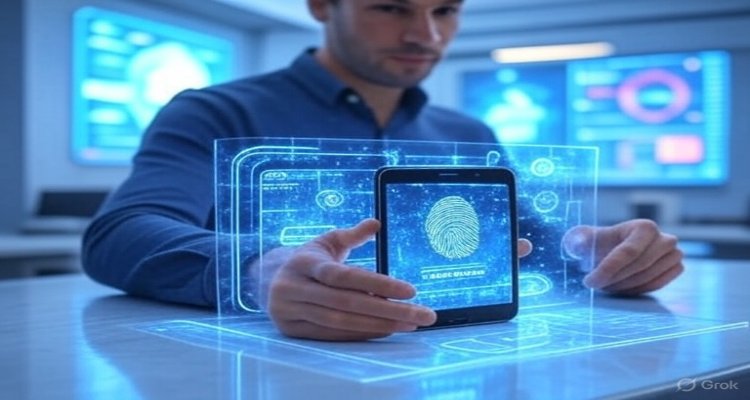The Future of Work Without Passwords

The workplace is moving toward a passwordless future. Discover how biometrics, passkeys, and zero-trust systems are reshaping security and work culture.
Introduction: A World Beyond Passwords
Imagine logging into your office computer, accessing sensitive reports, or joining a video call—without typing a single password. This vision, once futuristic, is fast becoming reality. As organizations battle relentless cyberattacks and employees juggle dozens of login credentials, the workplace is embracing a new era: the future of work without passwords.
Context & Background: The Password Problem
For decades, passwords have been the backbone of digital security. Yet they have also been one of its weakest links. Employees often reuse simple codes, forget complex combinations, or fall prey to phishing scams. According to cybersecurity reports, over 80% of breaches involve stolen or weak passwords.
The rise of remote and hybrid work during the pandemic only amplified this challenge. With staff accessing systems from homes, cafés, and co-working spaces, IT departments needed more secure and user-friendly solutions. Enter: passwordless authentication.
Main Developments: Shifting to Passwordless Authentication
Tech giants and enterprise systems are already leading the charge. Microsoft announced that millions of its users can sign in using passkeys, biometrics, or security keys—no traditional password required. Google and Apple have also rolled out FIDO Alliance-backed passkeys, which allow secure logins with a fingerprint, face scan, or device-based authentication.
In workplaces, this translates to:
- Biometric logins (fingerprints, facial recognition, voice ID).
- Hardware security keys like YubiKey or smart cards.
- Passkeys synced across devices, enabling seamless sign-ins.
- Zero-trust frameworks, ensuring every access request is verified, not just once at login.
Expert Insight & Public Reaction
“Passwords were never designed for the complexity of today’s digital world,” says Rohit Mehra, a cybersecurity analyst at IDC. “The move to passwordless systems is not just about convenience—it’s about drastically reducing risk.”
Employees, too, are responding positively. A survey by Gartner found that 64% of workers preferred biometrics over traditional passwords, citing faster logins and less stress remembering codes. However, concerns remain about privacy, particularly with biometric data storage.
Impact & Implications: Redefining Security and Work Culture
The implications of a passwordless future are vast:
- For Businesses: Stronger protection against cyberattacks, reduced helpdesk costs (password resets account for up to 50% of IT tickets), and compliance with stricter security regulations.
- For Employees: Smoother digital workflows, fewer login hurdles, and less vulnerability to phishing scams.
- For Society: A broader debate about how biometric data is stored, who owns it, and how to ensure transparency in its use.
Industries handling sensitive data—finance, healthcare, and defense—are expected to adopt passwordless systems most aggressively. Meanwhile, startups are innovating with decentralized identity tools, where workers own and control their digital credentials.
Conclusion: Looking Ahead
The password may not vanish overnight, but its dominance is fading. Just as typewriters gave way to laptops, the idea of remembering dozens of logins will feel archaic in a few years. The future of work without passwords promises not only enhanced security but also a smoother, more human-centric digital experience.
In this future, your fingerprint, your face, or even your voice might be the only “password” you’ll ever need.
Disclaimer : This article is for informational purposes only. It does not constitute cybersecurity or legal advice. Organizations should consult with security professionals before implementing passwordless systems.










